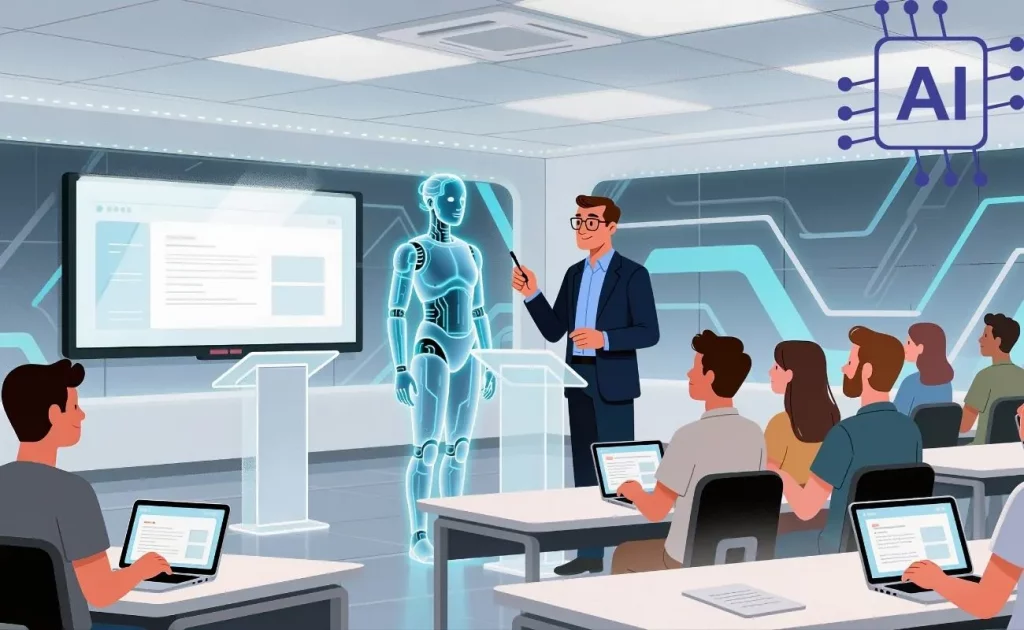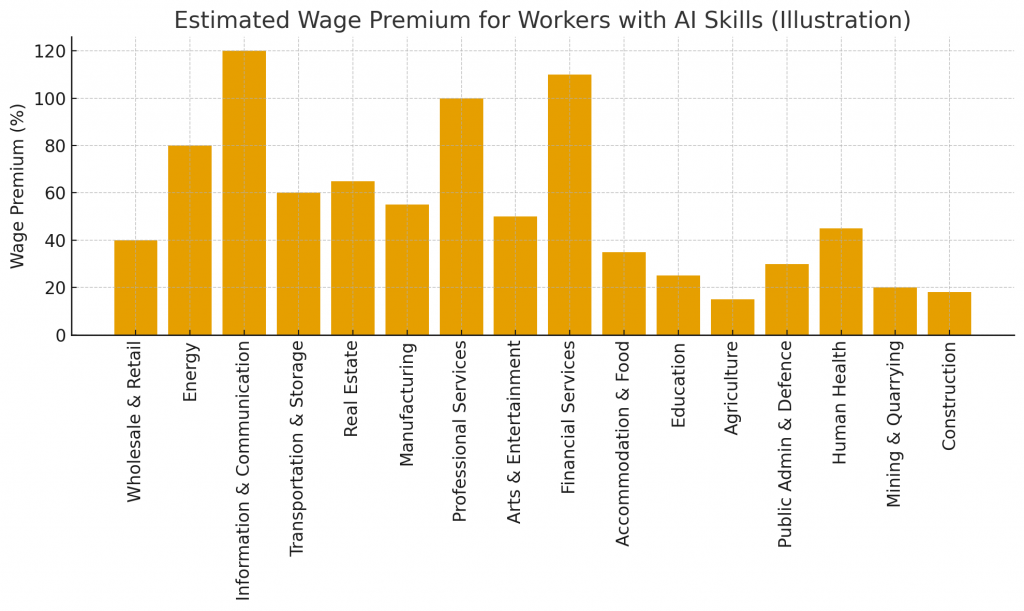AI might just be the secret to a fearless future. PwC’s latest AI Jobs Barometer hints at something big and surprisingly hopeful.

In a world anxious about automation, a quieter truth is emerging: AI is not here to replace us it’s here to elevate us. PwC’s 2025 Global AI Jobs Barometer reveals a decisive shift unfolding across industries and continents, where technology is amplifying human talent instead of eliminating it. This isn’t a story of loss but one of renewal, resilience, and rising opportunity. As Matt Wood, PwC’s Global Commercial Technology & Innovation Officer, puts it, “AI amplifies expertise. It doesn’t replace your ability to think; it makes you a better thinker.”
Below, we unpack how AI is changing the workplace and what it means for workers, business leaders, and the future of opportunity.
A New Social Contract: AI as a Human Multiplier
“We know that every time we have an industrial revolution, there are more jobs created than lost. The challenge is that the skills workers need for the new jobs can vary widely. So, the challenge, we believe, is not that there won’t be jobs. It’s that workers need to be prepared to take them,” the report highlighted. Productivity lifts, wages climb, and jobs evolve rather than vanish. AI hasn’t just boosted efficiency; it has supercharged human value creation. Industries most able to adopt AI are seeing 3x faster revenue per employee growth than less AI-exposed sectors, and productivity has nearly quadrupled since 2022, driven largely by AI’s emergence into mainstream operations.
This boost is translating into paychecks: wages in AI-exposed industries are rising twice as fast, and workers with AI skills command a 56% premium.

AI is reshaping roles not removing them. Even highly automatable jobs like customer service are evolving into higher-value work, where complex problem-solving and empathy take center stage.
From Automation Anxiety to Augmentation Reality
Real workers, real change: the rise of the augmented employee. PwC introduces us to Amina, a research analyst empowered by AI agents to focus on insights rather than data drudgery, and John, a customer care professional who moved from routine inquiries to resolving complex customer issues thanks to AI support. Their stories show AI’s promise: freeing the workforce to focus on higher-level judgment, creativity, and human-centered tasks.
This isn’t science fiction. It’s happening now across healthcare, hospitality, transport, and even legacy industries like mining and construction, where AI adoption is accelerating.
The Skills Earthquake: Faster Than Ever
The biggest workplace shift since the industrial revolution. Skills are evolving at breakneck speed 66% faster in AI-exposed roles, more than doubling in pace since last year. Mastery is no longer measured in years; it’s measured in months.
Yet there’s a silver lining: employers are relaxing degree requirements, especially in AI-powered fields, opening doors for millions. As Pete Brown, PwC UK Global Workforce Leader, notes, “Skills used to last 4–6 years. Now, they evolve every 12–18 months.”
It’s not what you studied; it’s what you’re capable of learning next.
Women at the Frontline of AI Opportunity
More women than men hold roles highly exposed to AI, placing them in the crosswinds of both risk and opportunity. If women can
navigate the AI-linked skills earthquake, they could benefit from the AI revolution. But adoption lags accelerating women’s AI skills growth will be critical to ensuring inclusive prosperity.
The New CEO Mandate: Think Bigger
AI is a growth engine, not a headcount strategy. Half of global CEOs say embedding AI across operations is their top priority over the next three years. And those who treat AI as a revenue catalyst not a cost-cutting tool are already winning.
Key strategic pivots shaping the era:
- Use AI for enterprise-wide reinvention, not silo solutions
- Invest in talent, not just tools
- Prioritize Agentic AI autonomous systems acting alongside humans
- Build trust and governance to unlock adoption and economic lift
This is a long-term play: as PwC notes, the global economy could expand by 15% if AI adoption earns public trust.
A Future Designed, Not Predicted
If we aim small, we risk creating automated versions of yesterday’s jobs. But if we aim boldly, AI could spark new industries, expand middle-income careers, and democratize access to high-value work. As PwC’s Joe Atkinson reminds us, “The future of work isn’t about doing less with fewer people it’s about doing more, better, together.”
This era won’t be defined by machines replacing humans but by humans empowered by machines.
The question isn’t whether AI will shape our future. It’s whether we will shape AI to build a future worth believing in.